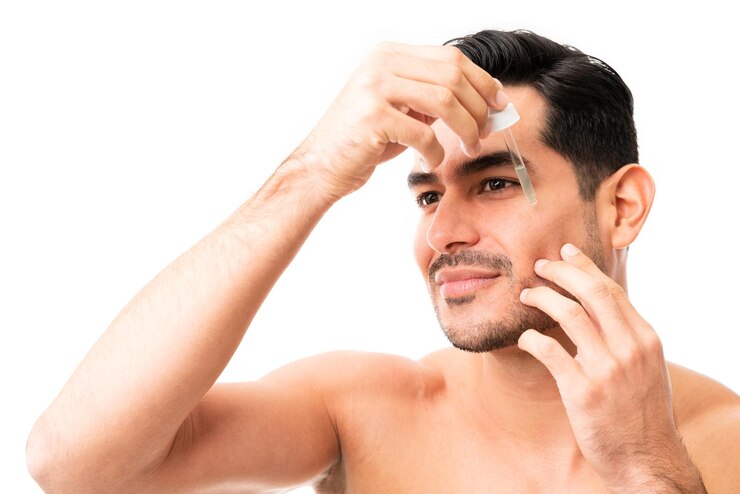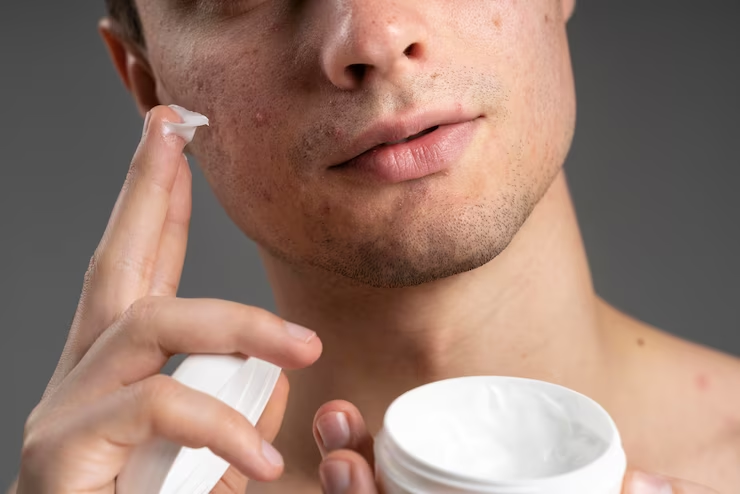
Collagen supplements have gained immense popularity in recent years for their potential to enhance skin health, reduce wrinkles, and promote a youthful appearance. As more people turn to these supplements in pursuit of radiant skin, concerns have arisen regarding their possible side effects, particularly in relation to acne. Can collagen, a vital protein responsible for skin elasticity and firmness, actually cause acne breakouts?
In this blog post, we will delve into the intriguing question: Can collagen cause acne? By examining scientific evidence, exploring anecdotal reports, and considering various factors, we aim to shed light on this topic and provide you with a comprehensive understanding of the potential relationship between collagen supplementation and acne. So, let's separate fact from fiction and discover the truth behind this commonly asked question.
What Causes Acne?
Acne, a prevalent skin condition affecting millions worldwide, is characterized by pimples, blackheads, and whiteheads. It is primarily caused by a combination of factors that contribute to the obstruction and inflammation of the skin's hair follicles, such as:
Excess oil production
, known as sebum, which can clog the pores and create an environment for acne-causing bacteria to thrive.Hormonal imbalances
, particularly during puberty, can lead to increased oil production and contribute to acne development.Dead skin cells
can also accumulate on the skin's surface and mix with oil, further blocking the pores.Genetics, certain medications, and lifestyle factors
like stress and diet, can also influence the development of acne.It's important to note that the exact causes and triggers of acne can vary from person to person, making it a multifaceted condition that requires a tailored approach to treatment and management.
Can Collagen Cause Acne?
Collagen plays a crucial role in maintaining healthy skin. It is a protein that provides structural support, contributing to the skin's firmness, elasticity, and overall youthfulness. It is no wonder that collagen supplements have gained popularity for their potential benefits in improving skin appearance and reducing wrinkles.
However, when exploring the relationship between collagen and skin health, a common question arises: Can collagen cause acne? While collagen itself does not directly cause acne, there are factors to consider regarding its impact on the skin.
Benefits of Taking Collagen for Acne
Collagen supplementation is generally believed to have positive effects on the skin, promoting a more youthful and radiant complexion. It can help improve skin elasticity, reduce fine lines and wrinkles, and support overall skin health. These benefits stem from collagen's ability to stimulate the production of other essential components of the skin, such as elastin and hyaluronic acid.
Nevertheless, it is crucial to note that scientific research specifically investigating the link between collagen supplementation and acne is currently limited. Most studies focus on the beneficial effects of collagen on skin health rather than its potential adverse effects. Therefore, the available evidence is inconclusive, and more research is needed to establish a definitive relationship between collagen and acne.
Key Takeaway
If you're considering collagen supplementation and are concerned about potential acne breakouts, it's advisable to evaluate individual variations in response and consider factors beyond collagen alone. This includes assessing your overall skincare routine, lifestyle factors, and potential allergies or sensitivities to specific ingredients. Consulting with a dermatologist can provide personalized guidance and help determine the best course of action for your skin concerns.Factors to Consider When Choosing Collagen for Acne

When examining the relationship between collagen and acne, it is essential to consider various factors that can influence individual responses and outcomes. While some individuals may report experiencing acne breakouts after starting collagen supplementation, it is crucial to assess the broader context and potential contributing factors.
Individual Variations in Response
Each person's skin is unique, and individual variations in response to collagen supplementation can occur. Some individuals may be more susceptible to acne breakouts, while others may not experience any adverse effects. It is important to be aware of your skin's specific needs and tendencies when incorporating collagen into your skincare routine.
Overall Skincare Routine
Evaluating the entirety of your skincare routine is crucial when considering collagen and acne. If other products in your routine are comedogenic or pore-clogging, they can contribute to acne breakouts. Ensuring a balanced and suitable skincare regimen is essential for maintaining skin health while incorporating collagen for acne.
Lifestyle Factors
Various lifestyle factors can influence the potential impact of collagen on acne. Stress levels, diet, hygiene practices, and other habits can all contribute to acne development. Taking a holistic approach to skincare by addressing these factors can help minimize the risk of acne breakouts.
Potential Side Effects and Allergies
It is important to be aware of potential side effects or allergic reactions to collagen supplements. While rare, some individuals may have sensitivities or allergies to specific ingredients in collagen products, which could manifest as acne-like breakouts. Conducting a patch test before starting collagen supplementation can help identify any potential adverse reactions. Therefore, it is always better to consult your skin specialist before starting any supplement.
Quality and Purity of Collagen Supplements
The quality and purity of collagen for acne can vary among brands and products. It is important to choose reputable and trusted brands that prioritize high-quality ingredients and manufacturing processes. Lower-quality collagen supplements may contain additives or impurities that could potentially trigger acne breakouts in sensitive individuals.
Duration and Dosage of Collagen Supplementation
The duration and dosage of collagen supplementation can also influence its impact on acne. Some individuals may experience initial skin adjustments or purging when starting collagen supplementation, which can temporarily worsen acne before improvements occur. It is important to follow recommended dosages and give your skin time to adjust to the supplement.
Underlying Skin Conditions
Individuals with pre-existing skin conditions, such as acne-prone or sensitive skin, may have different responses to collagen supplementation. Factors like skin barrier function, inflammation, and underlying skin conditions can affect how the skin reacts to collagen. It is advisable to consult with a dermatologist to evaluate the compatibility of collagen supplements with your specific skin condition.
Collagen Source
Collagen for acne can be derived from various sources, such as bovine, marine, or plant-based. Different individuals may have varying sensitivities or tolerances to specific collagen sources. If you suspect that a particular collagen source may be contributing to acne breakouts, switching to an alternative source could be worth exploring.
Personal Health History
Individual health history, including any past or current medical conditions or medication use, can impact the potential interaction between collagen and acne. Certain medical conditions or medications may influence the skin's response to collagen supplementation. It is essential to discuss your health history with a healthcare professional when considering collagen supplementation.
Tips for Minimizing the Risk of Acne Breakouts
To ensure a clear and healthy complexion while incorporating collagen into your skincare routine, it's important to take proactive steps in minimizing the risk of acne breakouts. By following these practical tips, you can optimize your skincare regimen and maximize the benefits of collagen while keeping acne at bay.
Choose High-Quality Collagen Products
Opt for collagen supplements from reputable brands that prioritize quality and purity. Look for products that undergo rigorous testing and have positive customer reviews. High-quality collagen products are less likely to contain additives or impurities that could potentially trigger acne breakouts.
Patch Test Before Starting Collagen Supplementation
Conduct a patch test before incorporating collagen supplements into your skincare routine. Apply a small amount of the product to a small area of your skin and monitor for any adverse reactions, such as redness or breakouts. This can help identify any potential sensitivities or allergies to specific ingredients in the collagen supplement.
Gradually Introduce Collagen Supplements
Start with a lower dosage of collagen and gradually increase it over time. This allows your skin to adjust to the supplement and minimizes the risk of sudden acne breakouts. Monitor your skin's response and make adjustments as necessary.
Maintain a Consistent Skincare Routine
Stick to a consistent skincare routine that includes gentle cleansing, exfoliation, and moisturization. Use non-comedogenic skincare products that won't clog pores or contribute to acne breakouts. Ensure that your skincare routine complements the collagen supplementation and promotes overall skin health.
Practice Good Hygiene Habits
Maintain good hygiene practices to minimize the risk of bacterial buildup and acne breakouts. Wash your face twice a day using a mild cleanser and avoid touching your face with dirty hands. Use clean towels and pillowcases and avoid sharing skincare tools or makeup brushes to prevent the spread of bacteria.
Manage Stress Levels
High stress levels can exacerbate acne breakouts. Incorporate stress management techniques such as exercise, meditation, or engaging in hobbies to help reduce stress levels. Taking care of your mental well-being can contribute to overall skin health.
Follow a Balanced Diet
Adopting a balanced diet that includes fruits, vegetables, lean proteins, and whole grains can promote skin health. Limiting the consumption of processed foods, sugary snacks, and greasy foods can help minimize the risk of acne breakouts. Stay hydrated by drinking an adequate amount of water daily.
Consult a Dermatologist
It is always better to consult with a dermatologist and discuss all your concerns because no one can guide you better about all your skin related issues than the doctor who is a specialist of that field.
To wrap it up…
The relationship between collagen and acne is complex and multifaceted. While collagen itself does not directly cause acne, individual responses can vary. Factors such as skincare routine, lifestyle choices, collagen source, and product quality can influence the potential risk of acne breakouts when incorporating collagen supplementation.
To minimize the risk of acne while using collagen for skincare, follow these tips: choose high-quality collagen products, conduct patch tests, gradually introduce supplementation, and maintain a consistent skincare routine. Consulting with a dermatologist can provide you with personalized guidance based on your specific needs and skin condition.
Remember, while collagen offers potential benefits for skin health, it is important to be mindful of individual variations and take a comprehensive approach to skincare to maintain a clear and healthy complexion.







